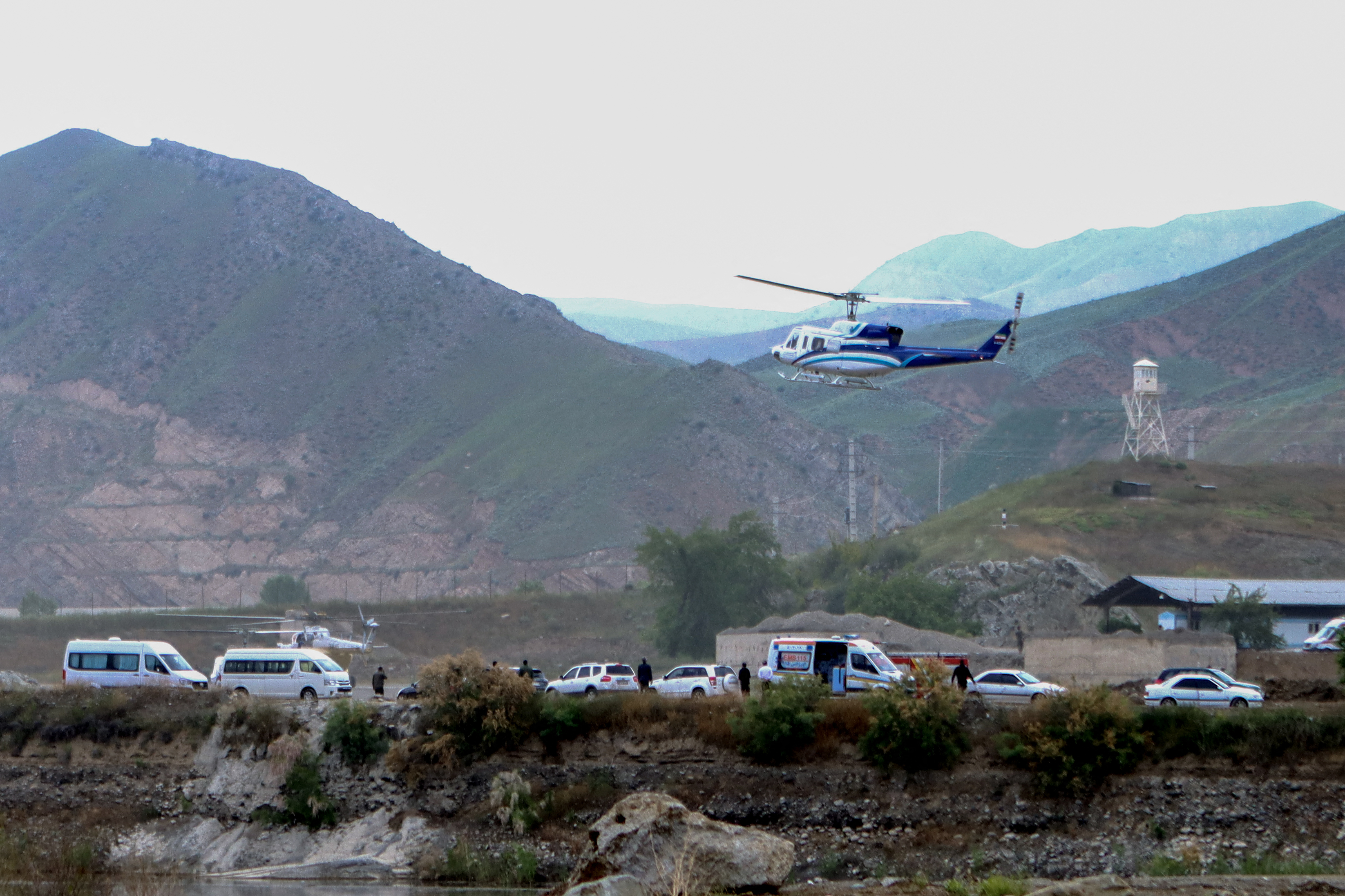Uncommon Knowledge
Newsweek is committed to challenging conventional wisdom and finding connections in the search for common ground.

While Iran mourns the loss of President Ebrahim Raisi and three top officials who died on Sunday when their helicopter crashed in a mountainous region of the border with Azerbaijan, concerns about helicopter safety have come into the spotlight once again.
Raisi joins a long list of world leaders and celebrities who have lost their lives in helicopter crashes. It’s a grim tally that includes NBA legend Kobe Bryant, Thai billionaire Vichai Srivaddhanaprabha and, more recently, Sebastian Piñera, the former president of Chile.
Iranian officials have blamed U.S. sanctions for contributing to Raisi’s death, alleging that the sanctions have severely impacted Iran’s aviation maintenance and safety standards. But the data shows that flying in a helicopter is among the most dangerous ways to travel by air.
According to the National Transportation Safety Board (NTSB), helicopters crash at a higher rate than any type of airplane. The crash rate for helicopters is 9.84 per 100,000 hours, indicating a 35% higher risk of an accident compared to airplanes. For general aircraft — such as cargo planes and private jets — that number is 7.28 crashes per 100,000 hours of flight time. Commercial aircraft have a far lower rate of crashes than both.
The most common factor in helicopter accidents is pilot error, often due to fatigue, extreme pressure, or handling complex equipment, as noted by aviation training provider Pilot Institute.
“There are reasons why the pilot error is even more likely in a helicopter than in an airplane. Firstly, most helicopters require more hands-on flying than fixed-wing aircraft,” according to the group.
Helicopters are also inherently difficult to pilot and fly at lower altitudes and speeds than planes, exposing them to challenges like weather and obstacles.
Still, many aviation experts argue that helicopters remain a relatively safe mode of transportation, especially compared to cars. According to the U.S. Helicopter Safety Team, between 2019 and 2023 the fatal accident rate was 0.73 per 100,000 flight hours. While driving deaths are tabulated differently, the latest government statistics estimate 1.35 fatalities per 100 million vehicle miles driven.
Helicopter safety statistics also do not take into account that many choppers are used for tasks that demand precise maneuvers in challenging environments, such as medical evacuations and firefighting.
Earlier this year, former Chilean President Sebastián Piñera died when his helicopter crashed into a lake in southern Chile. Piñera was personally piloting the chopper to his home in Coique Bay to have lunch with his family when, about a quarter mile from the shore, he lost control of the aircraft and crashed into the water. The cause of the crash is still under investigation.

In 2020, the sports world was shocked by the death of basketball player Kobe Bryant. He, his daughter Gianna, and seven others died in a helicopter crash in Calabasas, California amid dangerous fog.
And in 2018, another high-profile accident occurred when Vichai Srivaddhanaprabha, owner of English Football Club Leicester City, died in a helicopter crash outside King Power Stadium in Leicester, England. Four of the five people on board survived the initial accident, but died when the chopper exploded, likely from a fuel leak.
Newsweek is committed to challenging conventional wisdom and finding connections in the search for common ground.
Newsweek is committed to challenging conventional wisdom and finding connections in the search for common ground.